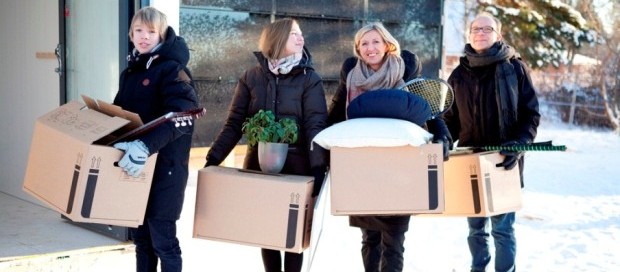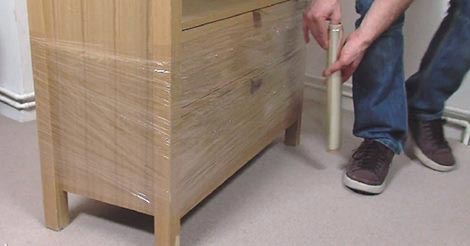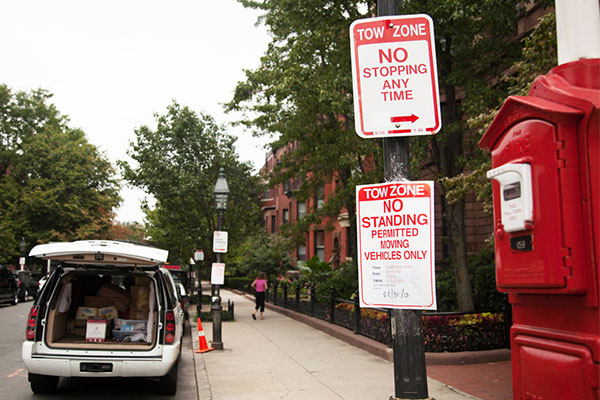It’s officially cold here in the Boston area. Moving seems like it’s not that fun this time of year, but actually, there are certain advantages. For one, prime moving season happens between May and September – which means that it’s easier to get movers on the times and dates that you want, and finding a place may be easier or cheaper. Of course, there are problems, too. A little caution, foresight, and flexibility will get you through! And Pony Express Moving’s guide to cold-weather moving will help.
Take the weather into account
As your moving day comes near, make sure to check weather reports to make sure that you’re prepared. Of course, Boston weather is notoriously changeable and often unpredictable, so you’ll want to keep that in mind. Remember to keep your cold-weather supplies easily available. You may need your snowblower, coats, gloves, and scrapers. And lots of towels.
If there’s going to be lots of snow, plan your moving route to include main streets that are likely to be shoveled and salted. If the weather is going to be bad, avoiding busy streets might be the way to go. Clear your sidewalks and driveways so that moving your belongings is less dangerous. At your new place, make sure all the utilities are working before you move in. Do this a few days in advance so you can deal with any problems before moving day. Make sure your car is also ready.
Take care of your people and pets for winter move
Some sites recommend turning off your heat during a move; we don’t, as we think a couple of hours aren’t going to be that much of a hit on your utility bill, and Boston is no fun in icy temps. Still, it will be colder in your house because need doors will be propped open. It might be nice to provide warming alternatives for you and your helpers – a warm bathroom with a space heater, for example, or a carafe full of hot coffee in the kitchen (don’t forget cups!).
If you have small children and pets, do your best to keep them away from the chaos of moving. This will expedite the moving process and lower your stress levels – as well as theirs. Arrange care for your pets and kids in advance. Consider boarding your pets, so they don’t get underfoot or lost during the moving process. If you wish your kids to be part of the moving experience, let them pack and move their toys at the end of the move. This lets them feel part of the crew, but keeps them away while the big stuff is being done.
Take care of your things during winter move
Take shorter days into account, and get started early. Know what kind of action is likely to be happening on your street – will trucks come out to shovel the snow while you’re moving? Are there parking restrictions in place due to snow or season?
Snow, ice, and dirt may very well get into your car, your old home, and your new home. Make sure towels are available to wipe down furniture and boxes. Put mats or tarps down on your floors to soak up snow and water. Cover your boxes and furniture with blankets or sheets as you move them outside to minimize moisture and damage due to inclement weather conditions.
Be extra careful with fragile items and electronics. Electronics don’t like the cold, so know where you’re placing them and take care to keep them with you in a warm car. Fragile items can be packed with additional cushioning to avoid breakage. Remember that moving trucks may sit out overnight, so if your items can be damaged by cold you’ll want to make alternative arrangements.
Seriously, hire movers. Professionals know how to deal with this kind of weather. Listen to them. They have plenty of experience in moving, and they know what works.
Consider Pony Express Moving for all your winter move needs!
Part of our job at Pony Express Moving is to advise you on how to make hassle-free moves, and we’re good at it. We’ve been moving people in Boston for more than 18 winters now, and we know what we’re doing. The winter move of a two-bedroom apartment that may take you all day can be done by our professionals in just five hours!
If you’re moving in the winter, you’ll have to be careful and work out as many elements in advance as possible. You’ll also have to be flexible! Pony Express Moving can help – get an free estimate today.



 Because, let’s face it, moving is stressful. And expensive. And did we mention stressful? It’s no wonder most people eventually decide to ditch the DIY approach and hire professionals. But that doesn’t mean the stress goes away. There are plenty of things that could go wrong.
Because, let’s face it, moving is stressful. And expensive. And did we mention stressful? It’s no wonder most people eventually decide to ditch the DIY approach and hire professionals. But that doesn’t mean the stress goes away. There are plenty of things that could go wrong.
 It’s the day before the move, and you still haven’t finished packing. Putting away the dishes are taking way longer than you expected. But at long last, you think that you’ve finally finished packing up your whole house. You breathe a sigh of relief, as you pour yourself a glass of celebratory wine. You walk around your place one last time, and notice a dresser in the corner, full of stuff. You are too tired to care, and figure that it can be moved as is.
It’s the day before the move, and you still haven’t finished packing. Putting away the dishes are taking way longer than you expected. But at long last, you think that you’ve finally finished packing up your whole house. You breathe a sigh of relief, as you pour yourself a glass of celebratory wine. You walk around your place one last time, and notice a dresser in the corner, full of stuff. You are too tired to care, and figure that it can be moved as is. It’s the morning of the move, and the moving company calls you to say they’re on the way. They ask you where they can park their big truck, and that’s when panic sets in. You dash outside, only to find cars lining the streets as far as the eye can see. The closest parking spot is 2 blocks away, and you sheepishly inform the movers of the situation. They let you know that this move will now need to go late into the night, and cost triple the amount that you had anticipated.
It’s the morning of the move, and the moving company calls you to say they’re on the way. They ask you where they can park their big truck, and that’s when panic sets in. You dash outside, only to find cars lining the streets as far as the eye can see. The closest parking spot is 2 blocks away, and you sheepishly inform the movers of the situation. They let you know that this move will now need to go late into the night, and cost triple the amount that you had anticipated.

 Buying a home with a pool brings the luxury of a resort or club right to your own backyard. Imagine sunning yourself by the side of the pool, then taking a quick dip to cool off – it’s a vacation every day. While the fantasy of owning a pool appears ideal, the reality is that owning a pool requires a lot of work. More than you probably anticipated when the moving company started unloading boxes into your new home. If you never owned a pool before, read below for pool maintenance pointers.
Buying a home with a pool brings the luxury of a resort or club right to your own backyard. Imagine sunning yourself by the side of the pool, then taking a quick dip to cool off – it’s a vacation every day. While the fantasy of owning a pool appears ideal, the reality is that owning a pool requires a lot of work. More than you probably anticipated when the moving company started unloading boxes into your new home. If you never owned a pool before, read below for pool maintenance pointers. Thankfully, now that I’m in my 30s and have a little more disposable income, I can afford to hire movers when I need them — and it’s money very well spent. If you’re not a convert yet, you should be. Here are six reasons you should always hire moving company.
Thankfully, now that I’m in my 30s and have a little more disposable income, I can afford to hire movers when I need them — and it’s money very well spent. If you’re not a convert yet, you should be. Here are six reasons you should always hire moving company.

